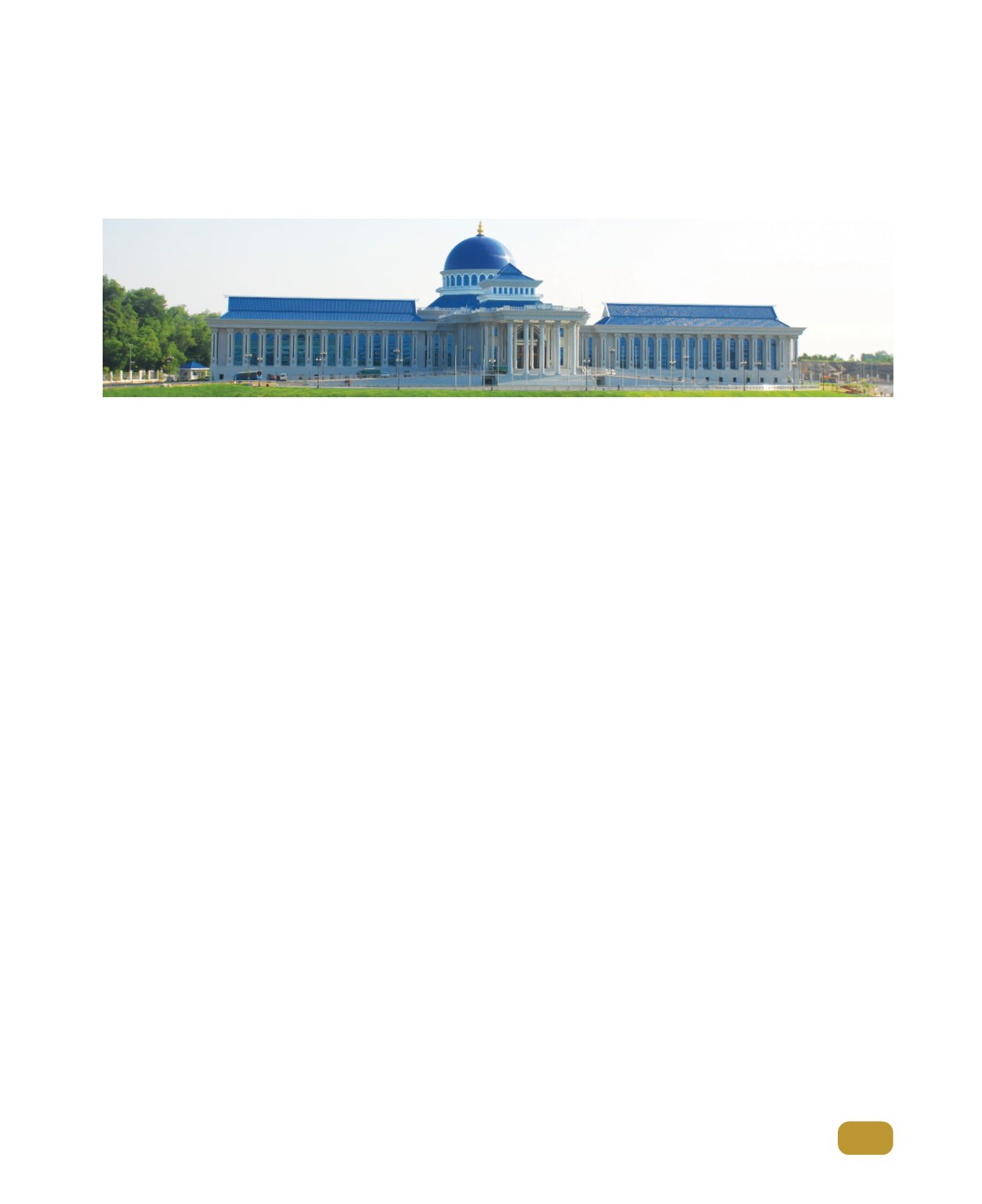

231
VISITOR INFORMATION
Legislative Council
Judiciary System
The Legislative Council (LegCo) is Brunei Darussalam’s
Parliament, acting as the official arena for airing and resolving
issues or problems within the country. First established
in 1959, the council held a total of 32 meetings until it was
frozen in 1984 after the country resumed independence.
Later in September 2004, the LegCo was revived and the
council continued to handle internal issues and concerns
over the next 12 years.
In August 2016, the Department of Councils of State under
the Prime Minister’s Office announced the dissolution of the
LegCo. His Majesty Sultan Haji Hassanal Bolkiah Mu’izzaddin
Waddaulah ibni Al-Marhum Sultan Haji Omar ‘Ali Saifuddien
Sa’adul Khairi Waddien, Sultan and Yang Di-Pertuan of Brunei
Darussalam commanded the re-establishment of LegCo the
following year. New members were sworn-in and received
attention for being predominantly young, placing emphasis
on LegCo’s new angle of youth involvement, invoking
optimism from the local community. In 2022, the Department
of Councils of State announced that the appointed LegCo
members were dissolved in accordance with the Prorogation
and Dissolution of the Legislative Council, Article 55(1) of the
Brunei Constitution. A swearing-in ceremony for the new
LegCo members was held in January 2023.
Besides the annual expenditure, the LegCo meetings also
discuss relevant and significant issues for the benefit of the
people in a consultation manner carried out harmoniously.
Brunei Darussalam’s legal system implements the English
Common Law and the Islam-ordained Syariah Law
simultaneously to preside over the country’s residents. The
two laws are overseen by the Supreme Court and coexist to
administer a system that is well-rounded and fair towards
the nation.
The Attorney General’s Chambers is responsible for
overseeing the execution of the laws and enacting any
amendments to existing acts. The Attorney General is
the principal legal adviser to the government and is also
responsible for the drafting of legislation. In carrying out the
task of legislative drafting, the Attorney General’s Chambers
works closely with the relevant ministries and departments.
To ensure a thorough and meticulous implementation of
the Syariah Law, a group of specialists spearheaded by the
Chief Syar’ie Judge oversees the process.









